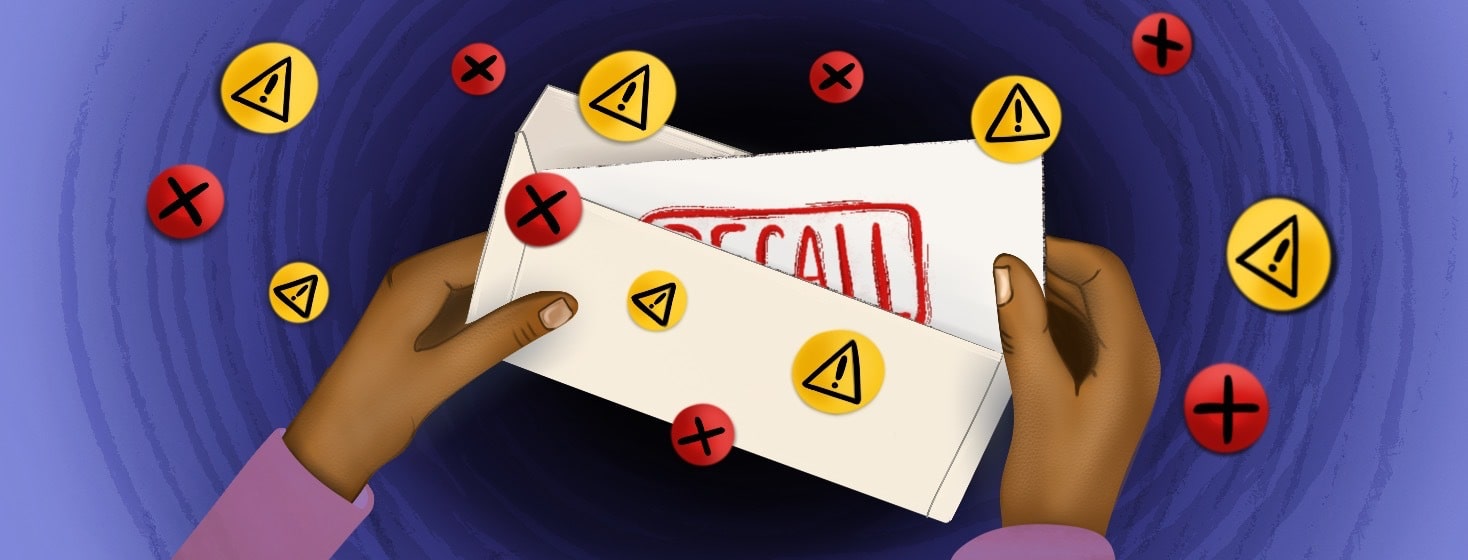When Medical Device Recalls Fail to Protect Patients
We see them in the news about everything from peanut butter to heart pumps – RECALLS! Recalls protect us from bad or outdated products. In the United States, most people think recalls come from the Food and Drug Administration (FDA). However, the FDA tracks reports about issues and other problems with medical devices. Actually, companies recall medical devices on their own.1
So, here’s the real question. If companies issue recalls, do these recalls protect patients currently using the devices or just future patients?
What is a medical device recall?
The FDA says, “a ‘recall’ [is] when a manufacturer takes a correction or removal action to address a problem with a medical device that violates FDA law.” Companies recall a medical device when it is defective, a risk to health, or both defective and a risk to health.1
Sometimes, a medical device is recalled because the manufacturer thinks it is no longer used by anyone. But that may not be true. Occasionally, a device is recalled because it needs checking, adjusting, or fixing.1
Other times, a company issues a recall on an entire lot, model, or product line. Even then, the device may still be in use in current patients. It just will not be used in future patients. Usually, this happens when the patient has an implanted medical device. In some cases, the device cannot be removed easily for various reasons.1
When are medical devices recalled?
A company recalls a medical device after receiving a warning letter from the FDA. The letter indicates that the company violated a law. The company issues a recall for either removal or correction and notifies the FDA.2-4
Sometimes, the FDA recalls a device if a company refuses to recall it and the device is linked to significant health problems or death. After receiving the recall notice from the company, the FDA puts it in the Medical Device Recall Database, notifies the public, and assigns to a specific class:1
- Class I – There is a reasonable chance it will cause serious health problems or death.
- Class II – It may cause a temporary or reversible health problem, or there is a slight chance that it will cause serious health problems or death.
- Class III – It is not likely to cause any health problem or injury.
Why don’t all recalls protect patients?
Ideally, the FDA monitors the recall plan given to them by the company to see if their plan worked. The recall ends when the FDA determines that the product no longer violates the law and no longer presents a health hazard.2,5
However, some companies receive several warning letters about their devices and never recall them. The FDA says their documents are only for "guidance." They do not establish legally enforceable responsibilities.5
Furthermore, the US Supreme Court ruled that “a medical-device manufacturer cannot be sued under State law by patients alleging harm from a device that received marketing approval from the [FDA].” Therefore, patients have no legal protections if (when) something goes wrong, even if it is part of a Class I recall.6
Fight for your rights
Just the other day, a company issued yet another recall for a heart pump malfunction. Amazingly, the same company had issued a previous recall noting that they made heart pumps that failed to restart! I have worked with an investigative journalist who found warning letters from YEARS ago. Why weren’t the companies forced to recall the pumps?
As election season approaches, fight for your rights. Why don't companies forfeit their legal protection if they don’t make the changes required by the FDA? Demand change from locals running for office. Ask for laws that protect patients by holding these companies accountable.
So many of us already fight to live. We don’t need the added stress from a fear of dying due to defective equipment.

Join the conversation